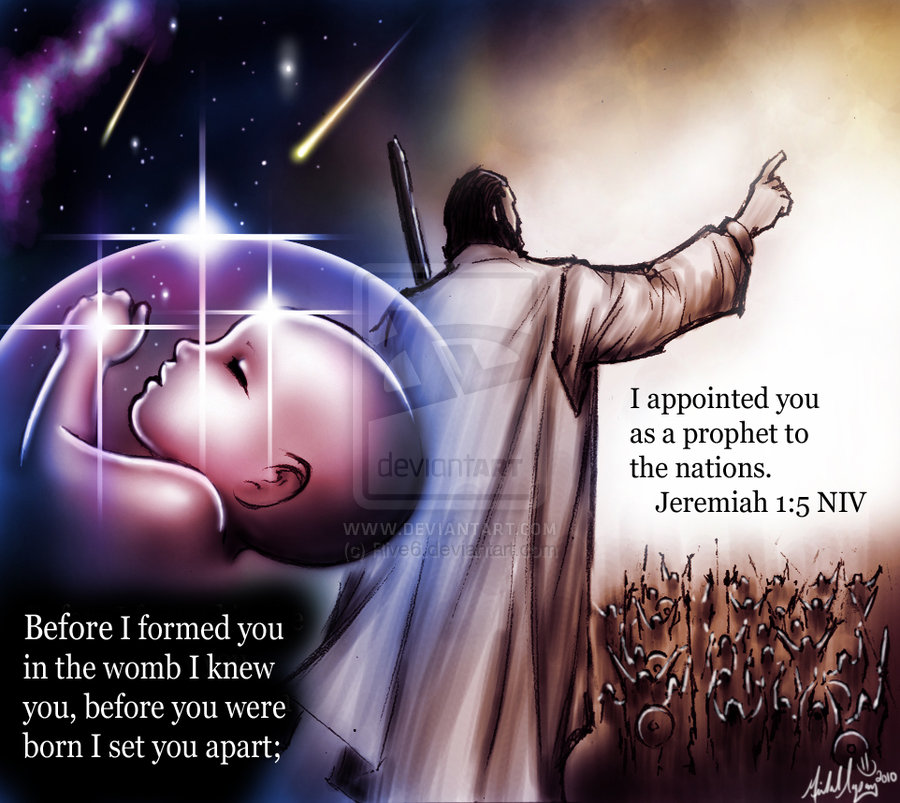
Most of us are aware that Jesus is not specifically mentioned in the Old Testament. What we know is that Scripture revealed God would send a Redeemer who would come from David’s lineage to save mankind, and that His throne shall endure for all time.
Yet we must wonder what Jesus did before the Advent, and whether the Bible described what He did. Did the disciples ask Jesus about this? What did the disciples know, and did they record any of these things for us?
In this initial inquiry, we consider a dispute that a group of Jews had with Jesus in Jerusalem, and in particular, about their heritage in Abraham. They ridiculed Jesus about His origin in John’s Gospel. So Jesus said to the Jews, “Your father Abraham rejoiced at the thought of seeing my day; he saw it and was glad.” John 8:56.
The background of this event is in Genesis 15:1-5. Jesus declared to the Jews that Abraham saw Him! But about this record in Genesis, it is not obvious to us that Jesus was there when we read the Bible.
It is amazing that in John’s Gospel also, Jesus told the Jews, “If you believed Moses, you would believe me, for he wrote about me.” John 5:46. Clearly, we realize that Jesus was saying that He was mentioned in the Old Testament. We are curious why John did not tell us directly.
Instead, John described Jesus in the Gospel’s Prologue as: In the beginning was the Word. And the Word was with God and the Word was God. He was with God in the beginning. John 1:1-3. Then John said that Jesus the Word was made flesh and dwelt among us. John 1:14.
We wonder why John spoke of Jesus as the Word. We are curious why John said this as a matter of fact, without giving details. Also when we read Genesis, we know it does not specifically mention the name of Jesus at Creation. Neither do we find the name of Jesus in any Old Testament book.
We realize there must be important reasons that John wanted us to know when he referred to Jesus as the Word. We are also nudged to look for Jesus in the five books that Moses wrote in Scripture. So we look at the Old Testament, to relate these puzzles with John’s Gospel and to understand why.
Abraham’s Encounter with God
In the Genesis account about Abraham, we read that the word of the LORD came to Abram in a vision: “Do not be afraid, Abram. I am your shield, your very great reward.” Genesis 15:1.
But Abram said, “O Sovereign LORD, what can you give me since I am childless and the one who will inherit my estate is Eliezer of Damascus?” Genesis 15:2
Here, we may have considered that the word of God was naturally spoken by God. We could suppose this meaning is obvious, yet it seems incomplete to conclude that Abraham heard God speaking, but saw no one. But the account does not say precisely how God appeared to Abraham. So we have to look beyond this explanation. We seek to know more.
In this account, it is obvious that the word of God that Abraham received would unlikely come by itself in thin air. There must be a messenger. But it is not through an angel because there is no mention of someone other than God in the description, the word of God.
As we read further about this conversation, we realize an important fact. Then the word of the LORD came to him: “This man will not be your heir, but a son coming from your own body will be your heir.” He took him outside and said, “Look up at the heavens and count the stars — if indeed you can count them.” Then he said to him, “So shall your offspring be.” Genesis 15:4, 5
Here, the text clearly shows that the word of the LORD came to Abraham, and the word of the LORD spoke! How can the word of the LORD speak, if it is not a Person? Further he took him outside and said to Abraham! It is not possible to conclude that the word of the LORD here only refers to spoken words. The word of the LORD is describing a Person and is also the message to Abraham.
If, indeed, the Apostle is telling us that the word of the LORD in the Old Testament refers to God or Jesus Himself, then it makes a lot of sense that John’s Prologue in the Gospel speaks of Jesus as the Word. It makes sense that John is telling us in cryptic fashion about the Word and Jesus, meaning that the Person who spoke to Abraham in the Old Testament is the word of the LORD.
We see that the word of God is not necessarily just the spoken words of God. Hence we must also look at the Old Testament, and consider how God revealed Himself when He spoke to the prophets.
We have reasons to think in this way and search for Jesus in the Old Testament. Jesus did say that the disciples “were foolish and slow of heart to believe all that the prophets have spoken”. This happened on the road to Emmaus when Jesus was talking to two disciples about His suffering and Resurrection. And beginning with Moses and all the prophets, He explained to them what was said in all the Scriptures concerning Himself. Luke 24:27
The Messenger of God
An angel refers essentially to a messenger. God does send angels to deliver His message, as we know God sent Gabriel and angels to speak to the prophets. We see this when we read Daniel 8:16, 9:21, when the archangel, Gabriel, was sent to deliver a message to Daniel. We also read in similar fashion at Christmas when God sent Gabriel to Nazareth to Mary. The angel went to her and said, ‘Greetings, you who are highly favoured!” Luke 1:28
However, when God is speaking, He identifies Himself. It may begin with, “Thus says the LORD”, or “declares the LORD”, or ‘Hear the word of the LORD”. Here, the title and description must include of the LORD, in referring to God Himself, so that we know the message is not spoken by an angel, or sent through an angel.
In the Genesis account, since the word is coming from God Himself, we naturally read the word of the LORD came. Then “He took Abraham outside” indicates to us that the LORD was there Himself. If Jesus Himself is the Messenger of God here, then we are able to understand why the Old Testament also referred to Him as the word of the LORD. Hence I conclude that this describes the Person and the message together.
Thus John is telling us to look for the Word when he spoke of Jesus.
Abraham’s Offspring
Hence, in the Gospel, Jesus told the Jews that He spoke to Abraham, for Jesus is the word of the LORD who took Abraham outside his tent to see the stars in the heavens. Abraham was told, “So shall your offspring be.”
The offspring is singular, not plural like for the stars that Abraham saw. Abraham was not merely told about this offspring, he saw this Person because God told Abraham that is how his “offspring shall be” — that is, when the time comes. Thus, Abraham saw his promised offspring, referring to one Person only. Hence in John’s Gospel, Jesus said Abraham saw my day and was glad. John 8:56
We have this Scripture confirmed for us in Paul’s letter to the Galatians. The promises were spoken to Abraham and to his seed. The Scripture does not say “and to seeds,” meaning many people, but “and to your seed,” meaning one person, who is Christ. Galatians 3:16
We begin to understand that the word of the LORD in the Old Testament speaks of Jesus. John knew Jesus was written in the Old Testament as the word of the LORD, and is the Son of God revealed in the flesh. We did not know except where God chooses to reveal what has been hidden to our eyes.
The Prophets and the Word of God
We see similar accounts in the prophets’ writings in Scripture. Jeremiah begins with these words: The words of Jeremiah son of Hilkiah, one of the priests at Anathoth in the territory of Benjamin. The word of the LORD came to me, saying, “Before I formed you in the womb I knew you, before you were born I set you apart; I appointed you as a prophet to the nations.” Jeremiah 1:1, 4-5.
Here, in Jeremiahs’ own account, it is more specific. The Word came to Jeremiah, “saying”. We are left in no doubt that the Word spoke to Jeremiah.
In the book of Isaiah, King Hezekiah was sick. God sent Isaiah to tell him that he would die. However, before Isaiah had left the palace, the word of the LORD came to Isaiah: “Go and tell Hezekiah, ‘This is what the LORD, the God of your father David, says: I have heard your prayers and seen your tears; I will add fifteen years to your life.’” Isaiah 38:4-6
Isaiah did not just hear a voice because God came to him. Isaiah saw Jesus. A separate account of this incident in the king’s chronicles said in the same manner. Before Isaiah had left the middle court, the word of the LORD came to him; “Go back and tell Hezekiah.” 2 Kings 20:4
Here are several other instances. The book of Ezekiel says — the word of the LORD came to Ezekiel the priest. Ezekiel 1:3
So also, in Jonah, the word of the LORD came to him. But Jonah ran away from the LORD and headed for Tarshish. Jonah 1:3. Evidently, the word of the LORD was not a voice because Jonah ran away from Him.
Thus says the LORD
In the Old Testament, the Hebrew verb amar and its noun refer to an action, to “say”. However, the Hebrew verb dabar, meaning also to “speak”, has a focus on the content of the message or in the words communicated. Hence in the noun for dabar, it is translated as “the word”.
We have always been careful to note the difference also when the Greek word logos is used in the New Testament. This has a concrete content which is different from the “spoken word” in the Greek word rhema.
Generally, “the word of the LORD came” implies more than the spoken word, and so we have the Greek word, logos. However, “thus says the LORD”, “declares the LORD” and “this is what the LORD says” are references to God’s spoken word.
Hence when we read the Prologue in John’s Gospel, we begin to understand there is a wider meaning to God’s word: In the beginning was the Word, and the Word was with God, and the Word was God. John 1:1. Jesus shall bring to pass all that has been written and given to us in God’s word because He is also the Word of God.
The explanation that the Word in the New Testament refers to a Greek context of form contains only a Greek philosophical idea about logos. It may have some reference against prevailing heresies like Gnosticism and syncretism in New Testament times, but John was not solely writing the Gospel with philosophy in mind. John was witnessing that Jesus is the Son of God. So this philosophical explanation is rather weak.
To this end, Jesus came as the Word to do what God said. It is written: “By the word of the LORD were the heavens made, their starry host by the breath of his mouth. He gathers the waters of the sea into jars; he puts them into storehouses.” Psalm 33:6, 7
So then, I seek to know more about Jesus as the word of the LORD in Creation.
References for pictures
http://podcast.westsideroseville.org/podcasts//0/JesusThruTheOT.jpg
http://upload.wikimedia.org/wikipedia/commons/6/62/Starsinthesky.jpg
http://www.blackfives.org/blog_pics/abram.jpg
http://www.biblegraphics.com/graphics/viewing/genesis/Gen4.jpg
http://2.bp.blogspot.com/_drqO7qJ_y4o/Sxd-J3uJ_3I/AAAAAAAAEos/VUBmXkz3ces/s400/DAN-8-GABE.jpg
http://biblecraftsandactivities.com/wp-content/gallery/genesis/abraham-hears-god-clr.jpg
http://girlsgrowingwithgod.com/wp-content/uploads/2011/07/1738005_s.jpg
http://brandondevotional.files.wordpress.com/2012/03/wpid-abraham-jesus-sm.jpg%3Fw%3D640
http://fc09.deviantart.net/fs71/i/2010/040/3/5/Jeremiah_1_5_by_Rive6.jpg
http://thejesusvirus.org/wp-content/uploads/2012/03/old-testament.jpg
http://b.vimeocdn.com/ts/109/077/109077818_640.jpg


















Thank you so much for this article. What an awesome and amazing insight into the scriptures. God bless you for sharing this.
This was a beautiful article and I am deeply impressed by your insight. Also, it is reminiscent of the I what I have learned through the teachings of the Church of Jesus Christ of Latter-Day Saints. Maybe you would enjoy this link: https://www.lds.org/manual/old-testament-student-manual-genesis-2-samuel/enrichment-section-a-who-is-the-god-of-the-old-testament?lang=eng
God bless you in your further studies.
Powerful message which has opened my spiritual understanding